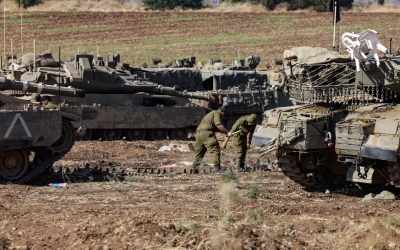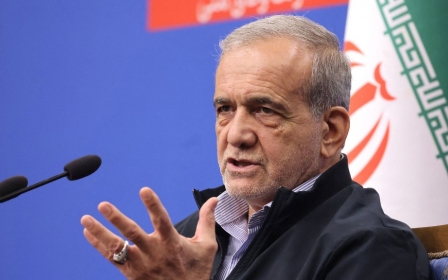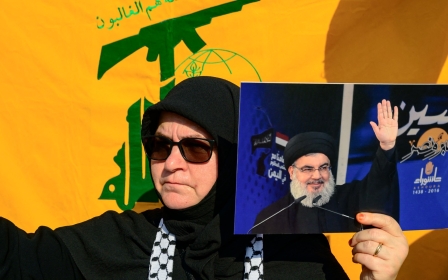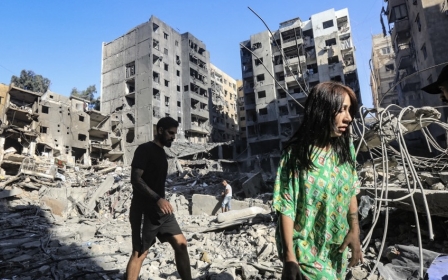Israel orders tens of thousands of Lebanese to flee their homes and head 60km north
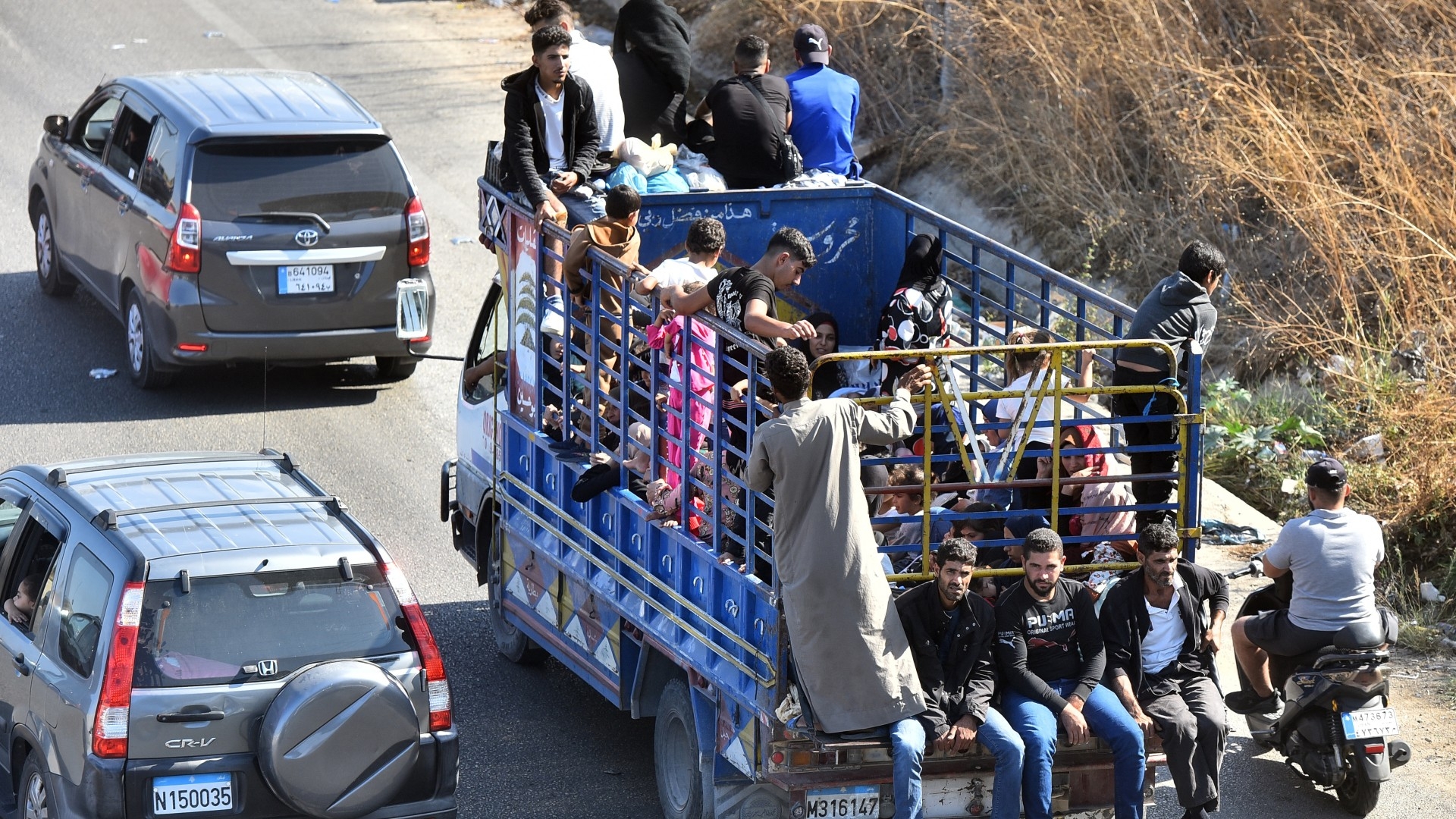
The Israeli army ordered tens of thousands of Lebanese to flee their homes and head 60km away from the border region on Tuesday, hours after launching what it said was a ground invasion.
The Israeli military's Arabic spokesperson, Avichay Adraee, wrote on the social media platform X that the inhabitants of 26 towns had to immediately leave their homes and head north of the Awali River for their "own safety."
Some of the areas listed by Adraee were near Tyre, south Lebanon's most populous city, and included the towns of Rashidiyah and Maarakeh; as well as several villages and towns near the Israel border region.
"[The Israeli army] does not want to harm you, and for your own safety, you must evacuate your homes immediately," Adraee said.
"Anyone who is near Hezbollah members, installations and combat equipment is putting his life in danger. Any home used by Hezbollah for its military needs is expected to be targeted," he added.
New MEE newsletter: Jerusalem Dispatch
Sign up to get the latest insights and analysis on Israel-Palestine, alongside Turkey Unpacked and other MEE newsletters
However, it was unclear why Israel asked the residents of certain towns and villages to leave and not others, nor why they ordered them to head so far north.
It was also unclear why the residents of cities south of the Awali River, including Saida and the southern city of Tyre, were not asked to leave.
The Awali sits 60km-90km away from the border and is much further north than the Litani River, an area that was intended to be a buffer zone and devoid of any armed personnel, assets and weapons after the 2006 war between Israel and Hezbollah.
The Israeli spokesman's warning came hours after its military said it had launched its invasion of Lebanon, a claim which was denied by the Hezbollah movement.
A statement from the Israeli army said that it was targeting villages in localised raids near the boundary that "pose an immediate and real threat to Israeli settlements on the northern border".
However, Mohammad Afif, the head of Hezbollah's media office, told the Reuters news agency that no Israeli troops had entered Lebanese territory.
In a written statement to Reuters, Afif also said that Hezbollah had not engaged in "direct ground clashes" with Israeli troops, and warned that its strikes on Tel Aviv hours earlier were "only the beginning."
Meanwhile, sources on the ground told Al-Mayadeen TV, which is close to Hezbollah, that there were no indications that Israeli soldiers had crossed the boundary into Lebanon as of Tuesday morning.
An Israeli security official also told the Financial Times early on Tuesday that Israeli forces had yet to engage Hezbollah fighters.
Still, heavy Israeli shelling was reported along southern Lebanon early on Tuesday, with attacks reported in the towns of Marjayoun, Wazzani and Khiam. There were also reports of a heavy presence of Israeli aircraft over southern Lebanon.
Hezbollah remains defiant
In his first public address on Monday, Hezbollah's deputy leader, Naim Qassem, struck a defiant tone following the killing of the group's former leader, Hassan Nasrallah, and said his forces were ready for battle.
"We are quite ready, if the Israelis want a ground incursion, the resistance forces are ready for that," Qassem declared.
The world's most heavily armed non-state actor, Hezbollah is believed to have tens of thousands of fighters and an arsenal of around 150,000 rockets and missiles.
Whilst the last round of fighting in 2006 ended in a stalemate, both sides have spent the past two decades preparing for their next showdown.
Speaking on Tuesday, Lebanon's caretaker prime minister, Najib Mikati, said the country was facing "one of the most dangerous phases" in its history and appealed for international aid during a meeting with UN organisations and ambassadors of donor countries.
The Lebanese government has said the conflict may have displaced up to one million people, although the UN estimate is around 200,000.
Recent air strikes are also believed to have wiped out most of Hezbollah's top leadership and the explosions of hundreds of pagers and walkie-talkies belonging to Hezbollah indicate that Israel has infiltrated deep inside the group.
Middle East Eye delivers independent and unrivalled coverage and analysis of the Middle East, North Africa and beyond. To learn more about republishing this content and the associated fees, please fill out this form. More about MEE can be found here.


